The adoption of the Pillar Two rules by the Inclusive Framework of the OECD in 2021, followed by the enactment of these rules by Canada in June 2024, have created an upheaval of the approach to international taxation. Multinational have undertaken a long and arduous journey to grapple with these novel rules and prepare themselves for the first year where these rules are going to impact them.
During the seminar, we will intend to highlight how the GMTA (Global Minimum Tax Act) is structured, how the mechanics of the rules operate, and illustrate how these rules operate in a Canadian context. We will also briefly discuss next step for Pillar Two – compliance and controversy.
This will be a fully in-person event. There will not be a virtual option.
MONTREAL | FEBRUARY 18
9:00 AM – 12:30 PM EST
Offices of Davies Ward Phillips & Vineberg SENCRL
1501 McGill College Avenue
Montréal, QC
CALGARY | FEBRUARY 26
9:00 AM – 12:30 PM MST
Calgary Petroleum Club
319 5 Ave SW
Calgary, AB

Jean-Charles van Heurck is an international tax partner at Ernst & Young LLP, in Montreal, Canada, having previously worked in New York, Tokyo, London and Brussels, both as a consultant and in-house.
Jean-Charles is solely focused on Pillar Two and has been for more than three years. He is leading Pillar Two for EY in Canada and has been engaging with multinationals across industries as well as tax authorities around the world on this matter.
Jean-Charles is a regular speaker at domestic and international tax seminars. He has a Master in Tax Management from the Solvay Business School of Economics and Management. He also has a Master in Law from Free University of Brussels.
9:00 am | Registration and light breakfast
9:30 am | Lectureship
12:30 pm | Adjournment
This program contains 3 substantive hours.
For Alberta lawyers, consider including this activity as a CPD learning activity in your annual Continuing Professional Development Plan.
While Continuing Legal Education (CLE) providers may offer activities that may be included in an Alberta lawyer’s CPD plan, the Law Society does not accredit activities provided by CLE providers.
The Law Society has a broad approach to the types of learning activities a lawyer can engage in for continuing professional development. As per Rule 67.1 of the Rules of the Law Society of Alberta, both formal and informal learning activities can count, provided the requirements under the Rule are met. It is each lawyer’s responsibility to determine whether a learning activity meets these criteria and therefore qualifies as continuing professional development.
The Law Society of British Columbia has approved this program for up to 3 CPD credits.
At the conclusion of the conference, you can click here to log-in to the Law Society of British Columbia’s website to register your credits. This program is listed under the name “2025 IFA Canada Lectureship”
This webinar may be reported for up to 3 hours of eligible CPD activity.
The Law Society of Manitoba does not accredit providers but reserves the discretion to determine that activities from specific providers may not be eligible if they do not sufficiently promote competent practice. It is up to the lawyer to decide whether the activity qualifies as an eligible CPD activity.
The Law Society of New Brunswick will continue to need to select appropriate educational activities and comply with the Rules on Mandatory Continuing Professional Development and the Requirements in all respects. Members are required to annually certify to the Law Society that they have completed their CPD requirements.
For Nova Scotia lawyers, consider including this Lectureship as a CPD learning activity in your mandatory annual Continuing Professional Development Plan as required by the Nova Scotia Barristers’ Society.
The Society does not accredit courses offered by CLE providers nor assign hours to a course. It is the decision of each lawyer whether a CPD course or activity meets the requirements of Regulation 8.3.3 and whether to include it in their CPD Plan.
This program is eligible for up to 3 Substantive Hours.
According to the Law Society of Ontario, substantive hours may address substantive or procedural law topics and/or law related subjects that are relevant to the lawyer’s or paralegal’s practice and professional development.
Les 3 heures de développement professionnel continu offertes par cette conférence ont été approuvées par le Barreau du Québec.
The 3 Continuing Professional Development hours offered by this conference have been approved by the Barreau du Québec.
This program qualifies for 3 CPD hours under the Law Society of Saskatchewan Continuing Professional Development Policy.
Lawyers are required to self-report their CPD activities in their Member Profile through the Law Society’s website.
Please note that registration for this event is now closed and at capacity.
Regular Member – $150
Young Member – $50
Academic Member – $50
Student – $10
Provincial Sales Tax will apply to registration fees at checkout.
Government (IFA Member or Non-Member) – $80
This rate is for employees of recognized government institutions. Validation may be required.
Provincial Sales Tax will apply to registration fees at checkout.
Non-Member – $200
Young* – $70
Academic** – $70
Student*** – $10
Special Offer – Membership + Registration – $250
Special Offer – Young Membership + Registration – $120
Special Offer – Academic Membership + Registration – $120
IMPORTANT NOTES
Provincial Sales Tax will apply to registration fees at checkout.
Special Offer Details: IFA Membership for the 2025 year and in-person registration to the conference at a discounted rate. Applies to new members only.
Special Offer Young membership: Must be under 30 years of age as of January 1st of the current calendar year. Applies to new members only.
Other Notes:
* Young Non-Member: DOB must be provided at check-out. Those under 30 years of age as of January 1, 2025, qualify.
** Full-time academics are professors with a valid email address from a recognized institution only.
*** Students must be full-time and need an email address from a recognized educational institution. Articling students and those already working in their profession do not qualify. Further proof may be required.

© International Fiscal Association (Canadian Branch) 2021. All rights reserved.